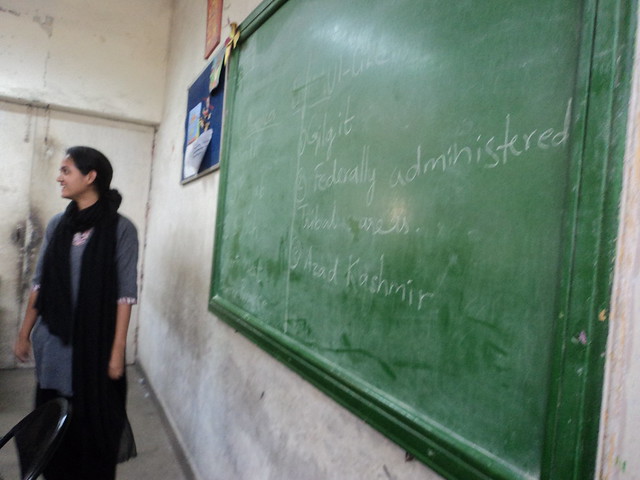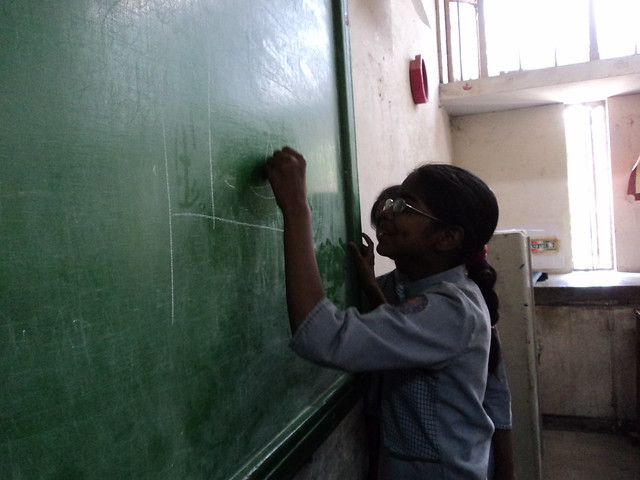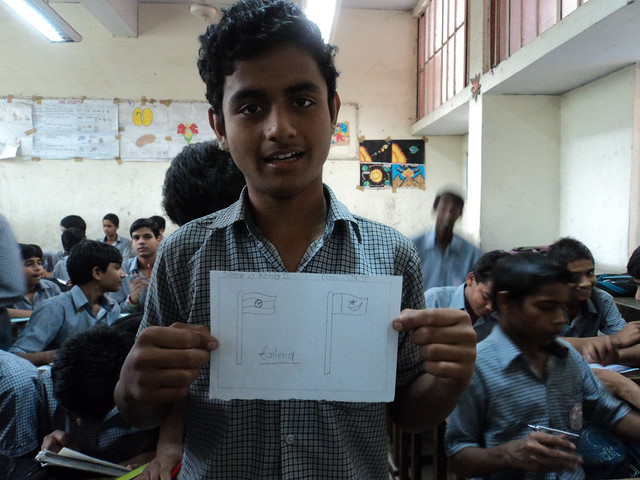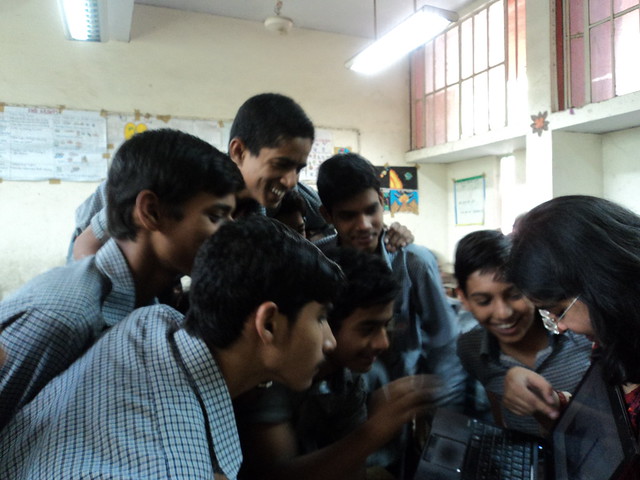By TCN News,
New Delhi: On 24th April, Aaghaz-e-Dosti, an Indo-Pak initiative of India-based Mission Bhartiyam and Pakistan-based The Catalyst – TC, organized its seventh Aman Chaupal in Delhi University’s Social Centre Co-ed School.
Aman Chaupal are informal and interactions held in schools and colleges in which students ask questions about Pakistan (in case of Aman Chaupal in Pakistan, they talk about India), Indo-Pak issues and discuss the importance of Indo-Pak peace. Through Aman Chaupal, they see the side of Pakistan that our media never shows.

Teaching students about Pakistan history, geography and culture.
The earlier Aman Chaupals have been done in some schools and universities in Delhi. The guests of Aman Chaupal have included journalists, activists, theatre persons from Pakistan. Aman Chaupal has been conducted with Peace activist Saeeda Diep, Senior Journalist and author Raza Rumi, Journalist Kiran Nazish and theatre personality Aamir Nawaz.
In this seventh Aman Chaupal, there was no guest from Pakistan. Aaghaz-e-Dosti team members addressed the students, initiated a discussion on Indo-Pak issues, talked to them about Pakistan and corroborated it with photographic evidence.

Drawing Pakistan flag
The Aaghaz-e-Dosti team for this event consisted of Devika Mittal, the Indian convenor of Aaghaz-e-Dosti and Amrita Middey. The programme was organized and co-ordinated by the efforts of Masakazu Kobayashi, a Japanese student studying in Delhi.
The session consisting of students from eighth and ninth standards was initiated by asking the students to share what they knew about Pakistan. The first word was IPL and that India always wins in IPL. Some other responses were that Pakistan is an Islamic country and no other religion exists there, Pakistan and India were same earlier, Pakistanis and Indians cannot visit each other and the view that they are our “enemies”.

Student showing his drawing and message for people of Pakistan.
After the interaction, the session began. The students were briefed about Pakistan’s history, its geography, about the different languages, ethnic groups and religions. In the case of religion, they were told that contrary to the popular conception, the constitution of Pakistan gives respect to all religions. It guarantees freedom of religion to all. It also has provisions for them. But they were also told that just like in India, there are groups there who discriminate and kill people in the name of religion for their own benefit. They were told about the dismal reality that exists on both sides. They were also told and shown through photographs how people belonging to the majority religion have condemned this. They protest against this. It was considered important to tell them because this is all that they knew and learn about Pakistan from media.
There was also a discussion on Indo-Pak conflicts including Kashmir issue. Students were briefed about it and told the stand of both countries as well as of Kashmiris. They were also told about visa problems, prisoners’ problems, the problems faced by people who have relatives in Pakistan and other issues. A student had himself told and others had agreed that how the media exaggerates news for its own benefit.

Showing photographs of religious harmony to students.
In the end, students were encouraged to reflect on what they had learnt. They were asked to draw or write a message for people of Pakistan. Most of them chose to write a message. They were excited when they were told that people in Pakistan will read it. Most of them wrote what they had learnt today. Some also expressed their desire to visit Pakistan. Some of the common themes in letters were that they learnt that Pakistan is a good country, people are good, they are like us in culture as well as thought, they also have violence in their country and condemn it like we do.
This session and other Aman Chaupal sessions are efforts not to convince students but to make them realize. It is an alternative medium to show the side of Pakistan that the media does not talk about, with the hope that they will become inspired to explore and question and in the process, will realize the truth that wars and hatred has never and will never give anything. Friendship is the way forward…
Concluding with a conversation of hope. One student remarked, “Main Pakistan jana chahtu par meri mummy mujhe jane nai dengi” (I want to go to Pakistan but my mother will not allow me).
